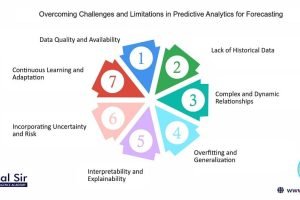How Data Analytics Is Shaping the Future of Business Intelligence
- Posted by admin
- Categories Blog, Data Analytics
- Date April 30, 2025
- Comments 0 comment
Introduction
In 2025, data analytics is no longer optional—it’s the backbone of business intelligence (BI). As organizations generate and store vast amounts of data, modern analytics tools are revolutionizing the way businesses operate, strategize, and compete. This article explores how data analytics is transforming the future of business intelligence and why mastering these skills is essential for professionals.
The Evolution of Business Intelligence
From Static Reports to Interactive Dashboards
Traditional BI focused on reporting historical data. Now, with advanced data analytics, businesses create interactive dashboards that allow for real-time decision-making.
Internal Link: Top 5 Power BI Features Every Data Analyst Should Know in 2025
Predictive and Prescriptive Analytics
With the help of machine learning and AI-powered models, companies can predict trends, customer behavior, and potential risks—enabling smarter business decisions.
Outbound Link: Gartner’s Guide to Predictive Analytics
Key Ways Data Analytics Is Shaping BI in 2025
1. Real-Time Data-Driven Decisions
Tools like Power BI and Tableau integrate with data streams to enable instant analysis, making businesses more agile and responsive.
2. Personalized Customer Experiences
With analytics, companies can segment audiences, track engagement, and deliver hyper-personalized marketing strategies.
3. Improved Operational Efficiency
Using analytics, businesses monitor performance metrics, streamline processes, and reduce costs through actionable insights.
4. Enhanced Risk Management
Data analytics supports fraud detection, compliance monitoring, and financial forecasting—reducing vulnerabilities in operations.
5. Data-Driven Culture
Organizations are adopting a data-first mindset, where employees at all levels use analytics tools for daily decision-making.
What This Means for Analysts and BI Professionals
-
- Upskilling is essential – Tools like Python, SQL, and Power BI are must-haves.
-
- Business acumen + technical skills = strategic advantage.
-
- Cross-functional collaboration is now data-powered.
Final Thoughts
The fusion of data analytics and business intelligence is reshaping how companies grow and compete. From small startups to global enterprises, the ability to analyze and act on data is driving innovation and long-term success.




